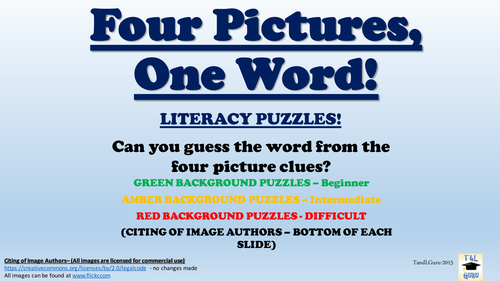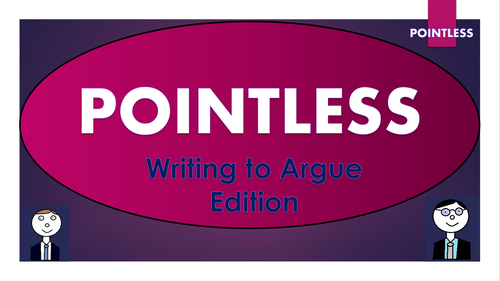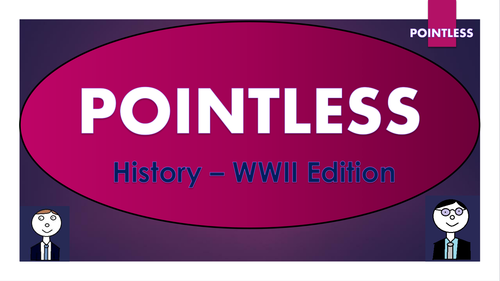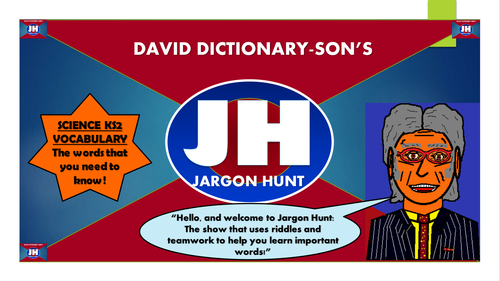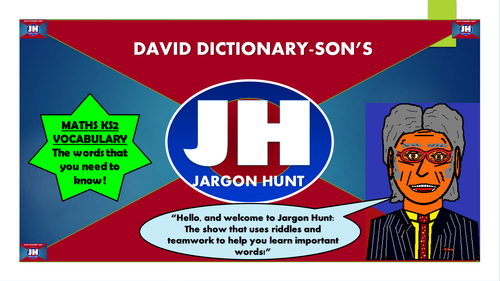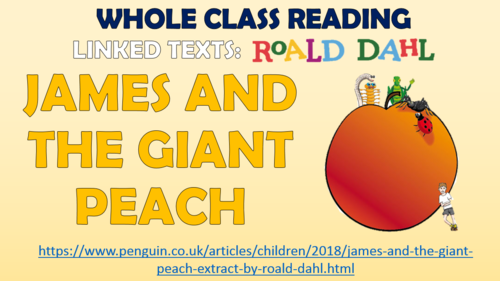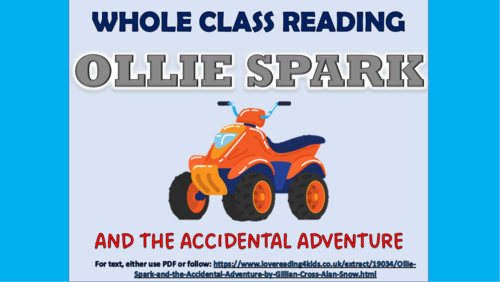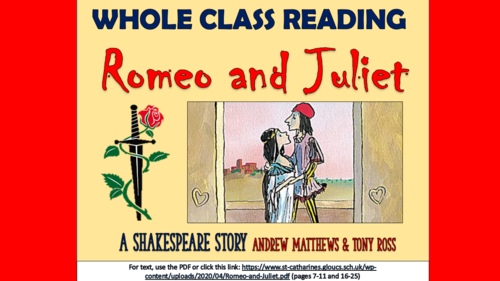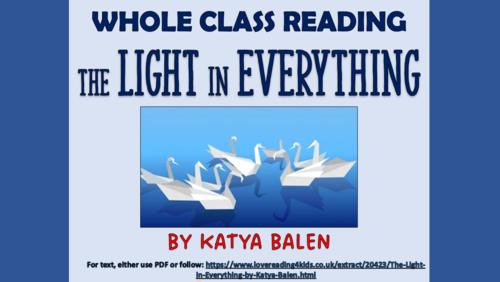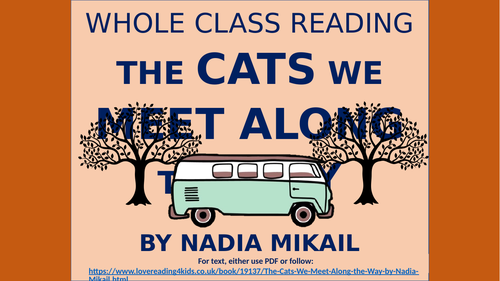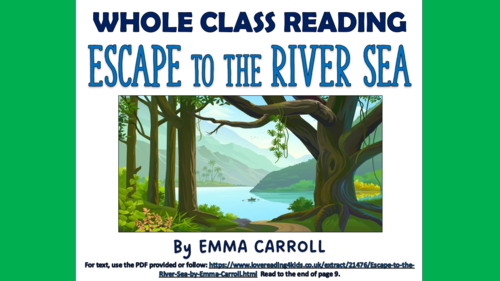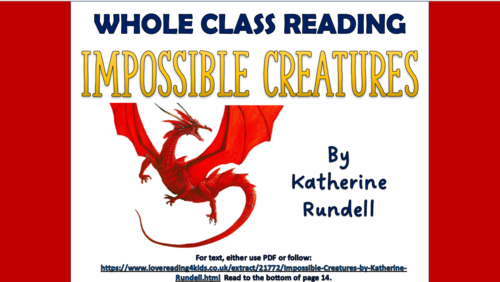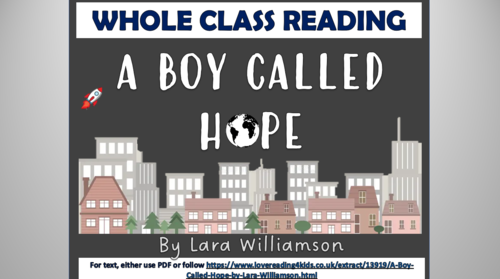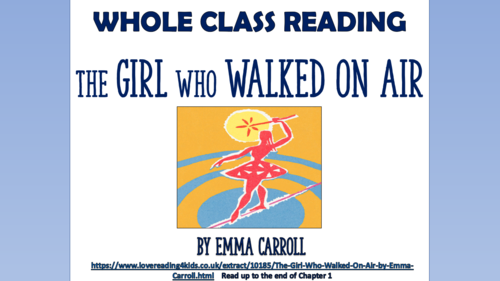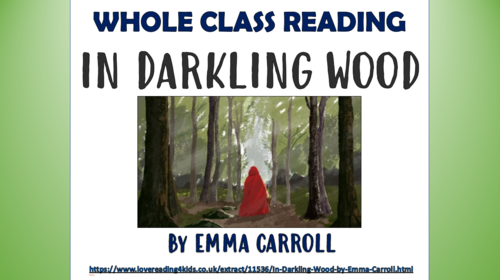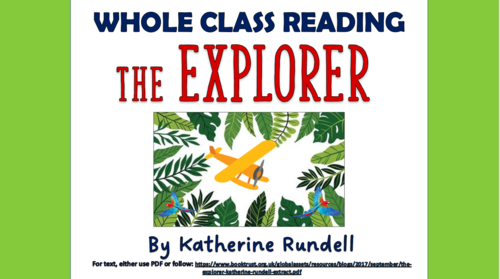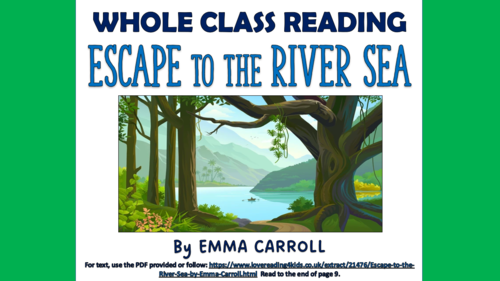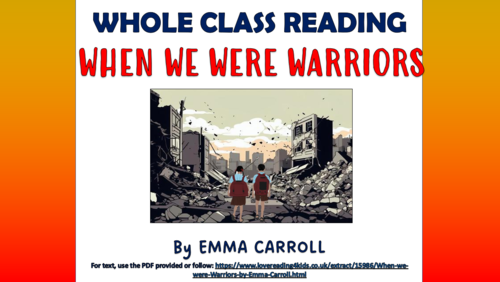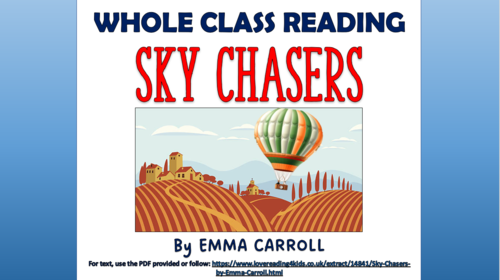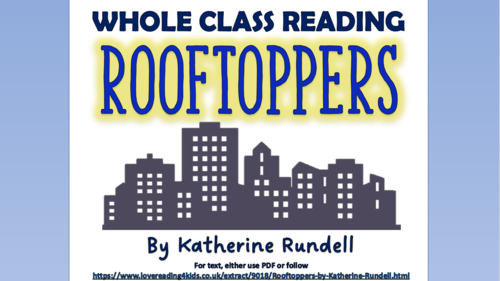
3k+Uploads
1862k+Views
2208k+Downloads
All resources

Four Pictures, One Word!
This is a great resource for lesson starters, building literacy across the curriculum, plenaries, or simply for fun. Based upon the popular mobile app, this visually engaging activity is highly effective at promoting engagement and getting students thinking about words - many of whom seem to love playing the game on their phones! It is particularly useful for Literacy practitioners who are looking to expand students' vocabularies and/or raise the subject of homonyms.
There are a range of challenges:
Green = Beginner level
Amber= Intermediate level
Red = Expert level
The document is easily editable, so you can also add in your own pictures and challenges. Also, all of the pictures used are licensed for commercial use, and all authors are cited.

Pointless: Writing to Argue Edition
Based on the popular game show 'Pointless', this resource is perfect for use as a starter activity, plenary, or revision tool. Editable, so that you can change to any other topic or change questions. Containing almost 30 slides of sound clips, engaging visuals, and suitably challenging questions, this resource is effective at both promoting engagement and enhancing learning. There are several full rounds of questions to build learning of Writing to Argue:
1. Identifying Arguing/ Persuasive Devices
2. Defining Arguing Devices
3. Identifying and Unscrambling Text Types and Jobs that use Structured Arguments
4. Naming Opposing Connectives (to help structure arguments.)
The nature of the game ensures that this resource can challenge students of all levels.

Pointless - History - World War II Edition
Based on the popular game show 'Pointless', this resource is perfect for use as a starter activity, plenary, or revision tool. Editable, so that you can change to any other topic or change the questions/answers. Containing almost 30 slides of sound clips, engaging visuals, and suitably challenging questions, this resource is effective at both promoting engagement and enhancing learning.
There are several full rounds of questions to build students' understanding of World War II, including:
1. Naming the combatant countries involved in World War II.
2. Identifying the key leaders and protagonists for the major warring nations.
3. Remembering key dates of major events.
4. Recalling details of the D-Day landings.
The nature of the game ensures that this resource can challenge students of all levels.
NOTE: You can buy this resource alone, or in a bundle of 8 Pointless games, for only £1 more!

Jargon Hunt - KS2 Science - Building Literacy through Riddles and Teamwork!
Welcome to Jargon Hunt! This engaging and exciting activity is perfect for building students' literacy skills; helping them to understand key Science vocabulary through cryptic rhyming riddles and teamwork.
Once the game is introduced and the rules are shared (on the presentation) students are given a riddle card and an answer card. The only catch is that their answer card does not match their riddle! Through reading their riddle to others, and allowing others to read their riddles to them, students learn the Science vocabulary as prescribed for teaching at KS2 in the new National Curriculum.
Provided in this pack are:
- 30+ slide presentation, hosted by David Dictionary-son, who walks students through the game in a step-by-step fashion.
-Class-size pack of riddle cards and answer cards. They simply need to printed on card, or printed on paper and laminated.
This resource is a valuable tool for helping students to comprehend the words that they will need to understand in the New Curriculum, build valuable speaking and listening skills, and also have lots of fun!
This resource can be bought alone. or as a part of a Jargon Hunt KS2 bundle (English, Maths, and Science) for just £1 more!

Jargon Hunt - KS2 Maths - Building Literacy through Riddles and Teamwork!
Welcome to Jargon Hunt! This engaging and exciting activity is perfect for building students' literacy skills; helping them to understand key Maths vocabulary through cryptic rhyming riddles and teamwork.
Once the game is introduced and the rules are shared (on the presentation) students are given a riddle card and an answer card. The only catch is that their answer card does not match their riddle! Through reading their riddle to others, and allowing others to read their riddles to them, students learn the Maths vocabulary as prescribed for teaching at KS2 in the new National Curriculum.
Provided in this pack are:
- 30+ slide presentation, hosted by David Dictionary-son, who walks students through the game in a step-by-step fashion.
-Class-size pack of riddle cards and answer cards. They simply need to printed on card, or printed on paper and laminated.
This resource is a valuable tool for helping students to comprehend the words that they will need to understand in the New Curriculum, build valuable speaking and listening skills, and also have lots of fun!
This resource can be bought alone. or as a part of a Jargon Hunt KS2 bundle (English, Maths, and Science) for just £1 more!

James and the Giant Peach - Whole Class Reading Session!
This whole class reading session aims to develop children’s comprehension of the opening chapters of Roald Dahl’s James and the Giant Peach.
It contains a link to the online chapter (on the first slide). This is followed by a series of activities aiming to develop children’s retrieval, explanation, inference, prediction and summarising skills. It also contains a vocabulary check immediately after the extract is read to clarify any unfamiliar/ difficult language.
The tasks are comprised of quick-check questions, solo thinking, pair/ group discussions and deeper thinking activities.
The session is best suited for children in years 2-3, although with minor adaptations it could feasibly be used with slightly younger and older year groups.

Ollie Spark and the Accidental Adventure - KS2 Whole Class Reading Lesson!
This whole class reading session aims to develop students’ comprehension skills through reading and interpreting the opening section of Ollie Spark and the Accidental Adventure.’
The resource pack includes the extract needed (as a PDF) and a clear and well presented PowerPoint, guiding the teacher and learners through the various activities. The reading is followed by a series of activities aiming to develop students’ retrieval, explanation, inference, sequencing and summarising skills. A vocabulary check helps to secure students’ understanding of any new or unfamiliar language.
The tasks are comprised of quick-check questions, solo thinking, pair/ group discussions and deeper thinking activities.
The session is best suited for learners in years 4-6, although with minor adaptations it could feasibly be used with slightly younger and older year groups.

Romeo and Juliet - KS2 Whole Class Reading Comprehension Lesson!
This whole class reading session aims to develop children’s fluency and comprehension skills whilst reading key extracts from an age-appropriate adaptation of Romeo and Juliet (the pages needed for the lesson are provided).
The extract is from the ‘Shakespeare Stories: Romeo and Juliet’ adaptation by Andrew Matthews and Tony Ross. The sections of the story that children read are when Romeo and Juliet meet at the ball (Act 1 Scene 5) and the balcony scene (Act 2 Scene 1).
The reading is followed by a series of activities aiming to develop children’s VIPERS skills: vocabulary, inference, prediction, explanation, retrieval, sequencing and summarising. It also contains a vocabulary check immediately after the extract is read to clarify any unfamiliar/ difficult language.
The tasks are comprised of quick-check questions, solo thinking, pair/ group discussions and deeper thinking activities. The text to read is provided in both PDF and Word format.
The session is best suited for children across KS2 - the lesson has been tried and tested with children in years 4 to 6. Hope that you find it useful!

The Light in Everything - Whole Class Reading Session!
This whole class reading session aims to develop students’ comprehension skills through reading and interpreting the opening section of Katya Balen’s ‘The Light in Everything.’
The resource pack includes the extract needed and a clear and well presented PowerPoint, guiding the teacher and learners through the various activities. The reading is followed by a series of activities aiming to develop students’ retrieval, explanation, inference, sequencing and summarising skills. A vocabulary check helps to secure students’ understanding of any new or unfamiliar language.
The tasks are comprised of quick-check questions, solo thinking, pair/ group discussions and deeper thinking activities.
The session is best suited for learners in years 4-5, although with minor adaptations it could feasibly be used with slightly younger and older year groups.

The Cats We Meet Along the Way - Reading Comprehension Lesson!
This whole class reading session aims to develop students’ comprehension skills through reading and interpreting the opening section of Nadia Mikail’s ‘The Cats We Meet Along the Way.’
The resource pack includes the extract needed and a clear and well presented PowerPoint, guiding the teacher and learners through the various activities. The reading is followed by a series of activities aiming to develop students’ retrieval, explanation, inference, sequencing and summarising skills. A vocabulary check helps to secure students’ understanding of any new or unfamiliar language.
The tasks are comprised of quick-check questions, solo thinking, pair/ group discussions and deeper thinking activities.
The session is best suited for learners in years 7-8, although with minor adaptations it could feasibly be used with slightly younger and older year groups.

The Renaissance Period - Whole Class Reading Session!
This whole class reading session aims to develop children’s fluency and comprehension skills through reading an interesting non-fiction introduction to the Rnaissance period. It includes information about what the Renaissance period was, how it started and the impact that it had upon the world. The text is two A4 sides in length.
The reading is followed by a series of activities aiming to develop children’s VIPERS skills: vocabulary, inference, prediction, explanation, retrieval, sequencing and summarising. This is provided on a visually-attractive, easy-to-follow PowerPoint presentation. It also contains a vocabulary check immediately after the extract is read to clarify any unfamiliar/ difficult language.
The tasks are comprised of quick-check questions, solo thinking, pair/ group discussions and deeper thinking activities. The extract needed is provided in both PDF and Word format.
The session is best suited for children across upper KS2 and lower KS3, I have previously used the resources with children in years 5 and 6.

Impossible Creatures - Whole Class Reading Session!
This whole class reading session aims to develop children’s comprehension skills through reading and interpreting the opening section of Katherine Rundell’s ‘Impossible Creatures.’
The resource pack includes the extract needed and a clear and well presented PowerPoint, guiding the teacher and learners through the various activities. The reading is followed by a series of activities aiming to develop children’s retrieval, explanation, inference, sequencing and summarising skills. A vocabulary check helps to secure children’s understanding of any new or unfamiliar language.
The tasks are comprised of quick-check questions, solo thinking, pair/ group discussions and deeper thinking activities.
The session is best suited for children in years 5-6, although with minor adaptations it could feasibly be used with slightly younger and older year groups.

A Boy Called Hope - Whole Class Reading Session!
This whole class reading session aims to develop children’s comprehension skills through reading and interpreting the opening section of Lara Williamson’s ‘A Boy Called Hope.’
The resource pack includes the extract needed and a clear and well presented PowerPoint, guiding the teacher and learners through the various activities. The reading is followed by a series of activities aiming to develop children’s retrieval, explanation, inference, sequencing and summarising skills. A vocabulary check helps to secure children’s understanding of any new or unfamiliar language.
The tasks are comprised of quick-check questions, solo thinking, pair/ group discussions and deeper thinking activities.
The session is best suited for children in years 5-6, although with minor adaptations it could feasibly be used with slightly younger and older year groups.

The Girl Who Walked on Air - Whole Class Reading Session!
This whole class reading session aims to develop children’s comprehension skills through reading and interpreting the opening section of Emma Carroll’s ‘The Girl Who Walked on Air.’
The resource pack includes the extract needed and a clear and well presented PowerPoint, guiding the teacher and learners through the various activities. The reading is followed by a series of activities aiming to develop children’s retrieval, explanation, inference, sequencing and summarising skills. A vocabulary check helps to secure children’s understanding of any new or unfamiliar language.
The tasks are comprised of quick-check questions, solo thinking, pair/ group discussions and deeper thinking activities.
The session is best suited for children in upper KS2, although with minor adaptations it could feasibly be used with slightly younger and older year groups.

In Darkling Wood - Whole Class Reading Session!
This whole class reading session aims to develop children’s comprehension skills through reading and interpreting the opening section of Emma Carroll’s ‘In Darkling Wood.’
The resource pack includes the extract needed and a clear and well presented PowerPoint, guiding the teacher and learners through the various activities. The reading is followed by a series of activities aiming to develop children’s retrieval, explanation, inference, sequencing and summarising skills. A vocabulary check helps to secure children’s understanding of any new or unfamiliar language.
The tasks are comprised of quick-check questions, solo thinking, pair/ group discussions and deeper thinking activities.
The session is best suited for children in lower KS2, although with minor adaptations it could feasibly be used with slightly younger and older year groups.

The Explorer - Whole Class Reading Session!
This whole class reading session aims to develop children’s comprehension skills through reading and interpreting the opening two chapters of Katherine Rundell’s ‘The Explorer.’
The resource pack includes the extract needed and a clear and well presented PowerPoint, guiding the teacher and learners through the various activities. The reading is followed by a series of activities aiming to develop children’s retrieval, explanation, inference, sequencing and summarising skills. A vocabulary check helps to secure children’s understanding of any new or unfamiliar language.
The tasks are comprised of quick-check questions, solo thinking, pair/ group discussions and deeper thinking activities.
The session is best suited for children in years 5-6, although with minor adaptations it could feasibly be used with slightly younger and older year groups.

Escape to the River Sea - Whole Class Reading Session!
This whole class reading session aims to develop children’s comprehension skills through reading and interpreting the opening section of Emma Carroll’s ‘Escape to the River Sea.’
The resource pack includes the extract needed and a clear and well presented PowerPoint, guiding the teacher and learners through the various activities. The reading is followed by a series of activities aiming to develop children’s retrieval, explanation, inference, sequencing and summarising skills. A vocabulary check helps to secure children’s understanding of any new or unfamiliar language.
The tasks are comprised of quick-check questions, solo thinking, pair/ group discussions and deeper thinking activities.
The session is best suited for children in years 5-6, although with minor adaptations it could feasibly be used with slightly younger and older year groups.

When We Were Warriors - Whole Class Reading Session!
This whole class reading session aims to develop children’s comprehension skills through reading and interpreting the opening section of Emma Carroll’s ‘When We Were Warriors.’
The resource pack includes the extract needed and a clear and well presented PowerPoint, guiding the teacher and learners through the various activities. The reading is followed by a series of activities aiming to develop children’s retrieval, explanation, inference, sequencing and summarising skills. A vocabulary check helps to secure children’s understanding of any new or unfamiliar language.
The tasks are comprised of quick-check questions, solo thinking, pair/ group discussions and deeper thinking activities.
The session is best suited for children in years 4-5, although with minor adaptations it could feasibly be used with slightly younger and older year groups.

Sky Chasers - Whole Class Reading Session!
This whole class reading session aims to develop children’s comprehension skills through reading and interpreting the opening section of Emma Carroll’s ‘Sky Chasers.’
The resource pack includes the extract needed and a clear and well presented PowerPoint, guiding the teacher and learners through the various activities. The reading is followed by a series of activities aiming to develop children’s retrieval, explanation, inference, sequencing and summarising skills. A vocabulary check helps to secure children’s understanding of any new or unfamiliar language.
The tasks are comprised of quick-check questions, solo thinking, pair/ group discussions and deeper thinking activities.
The session is best suited for children in years 4-5, although with minor adaptations it could feasibly be used with slightly younger and older year groups.

Rooftoppers - Whole Class Reading Session!
This whole class reading session aims to develop children’s comprehension skills through reading and interpreting the opening section of Katherine Rundell’s ‘Rooftoppers.’
The resource pack includes the extract needed and a clear and well presented PowerPoint, guiding the teacher and learners through the various activities. The reading is followed by a series of activities aiming to develop children’s retrieval, explanation, inference, sequencing and summarising skills. A vocabulary check helps to secure children’s understanding of any new or unfamiliar language.
The tasks are comprised of quick-check questions, solo thinking, pair/ group discussions and deeper thinking activities.
The session is best suited for children in years 5-6, although with minor adaptations it could feasibly be used with slightly younger and older year groups.

